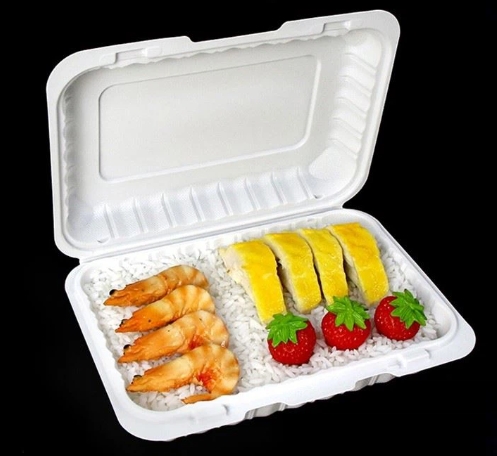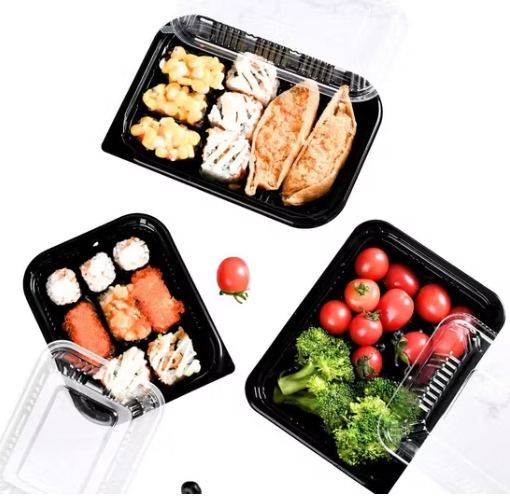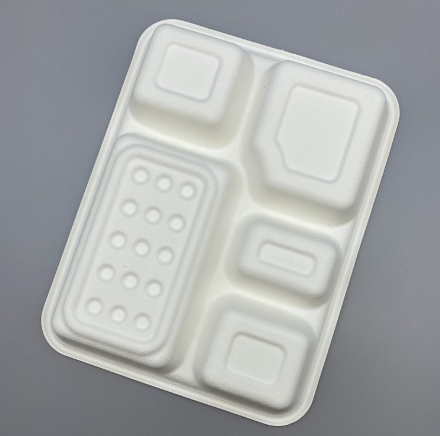
Content Menu
● Overview of the European Disposable Tray Market
● Key Trends Shaping the Industry
>> 1. Sustainability and Eco-Friendly Materials
>> 2. Customization and OEM Services
>> 3. Innovation in Design and Functionality
>> 4. Regulatory Compliance
>> 5. Digitalization and Supply Chain Efficiency
● Top Disposable Tray Manufacturers and Suppliers in Europe
>> Procos Party
>> Pap Star
>> Wisefood
>> Additional Notable Suppliers
● OEM and Private Label Opportunities
● Sustainability and Innovation in Disposable Trays
>> Eco-Friendly Materials
>> Certifications and Standards
>> Design Innovations
● How to Choose the Right Disposable Tray Manufacturer or Supplier
● Conclusion
● Frequently Asked Questions
>> 1. What are the most popular materials used by disposable tray manufacturers and suppliers in Europe?
>> 2. How do European suppliers ensure the sustainability of disposable trays?
>> 3. Can I order custom-branded trays from European manufacturers?
>> 4. What certifications should I look for when sourcing disposable trays in Europe?
>> 5. What are the current trends in the European disposable tray market?
In the dynamic world of foodservice and packaging, disposable tray manufacturers and suppliers are essential for ensuring hygiene, convenience, and sustainability. Europe, with its advanced regulatory environment and growing demand for eco-friendly solutions, has become a center for innovative disposable tray production. This article explores the leading disposable tray manufacturers and suppliers in Europe, their product offerings, market trends, and the future of sustainable packaging. Whether you are a brand owner, wholesaler, or OEM partner, understanding the European landscape is crucial for making informed sourcing decisions.

Overview of the European Disposable Tray Market
The European market for disposable trays is experiencing significant growth, driven by the rise in food delivery, catering services, and the increasing preference for hygienic, single-use packaging. In 2024, the European foodservice disposables market was valued at over USD 24 billion, with trays emerging as the leading packaging type. Germany, the UK, and France are at the forefront, thanks to their strong regulatory frameworks and consumer demand for sustainable solutions.
Disposable tray manufacturers and suppliers in Europe cater to a wide range of sectors, including:
- Restaurants and cafes
- Catering and event management
- Healthcare and institutional foodservice
- Retail and wholesale distribution
The market is characterized by a high level of innovation, with companies constantly developing new materials and designs to meet evolving consumer and regulatory demands. The shift towards sustainability is particularly pronounced, with many manufacturers investing in biodegradable, compostable, and recyclable tray options.
Key Trends Shaping the Industry
1. Sustainability and Eco-Friendly Materials
European regulations and consumer awareness are pushing manufacturers to adopt biodegradable, compostable, and recyclable materials. Trays made from sugarcane bagasse, bamboo, palm leaf, and recycled paperboard are increasingly popular. These materials not only reduce environmental impact but also align with the values of eco-conscious consumers and businesses.
2. Customization and OEM Services
Many disposable tray manufacturers and suppliers offer OEM and private label services, allowing brands to customize tray shapes, sizes, and branding to meet specific market needs. This flexibility is especially valuable for businesses looking to differentiate themselves in a competitive market.
3. Innovation in Design and Functionality
Manufacturers are investing in innovative designs, such as compartmentalized trays, dual-ovenable materials, and improved sealing for food safety and convenience. These advancements enhance the user experience and expand the range of applications for disposable trays.
4. Regulatory Compliance
European manufacturers must adhere to strict regulations regarding food safety, environmental impact, and product quality. Compliance with standards such as the EU Food Contact Materials Regulation and certifications like FSC and EN 13432 is essential for market access and consumer trust.
5. Digitalization and Supply Chain Efficiency
The adoption of digital technologies is transforming the supply chain, enabling better inventory management, faster order processing, and improved traceability. This trend is helping manufacturers and suppliers respond more effectively to customer needs and market fluctuations.
Top Disposable Tray Manufacturers and Suppliers in Europe
Procos Party
Procos Party is a leading European manufacturer and exporter of disposable tableware and party supplies. Established in 1954, Procos designs, manufactures, and distributes a wide range of single-use tableware, including trays, to over 76 countries. Their product portfolio covers licensed, generic, and bespoke private label ranges, making them a preferred partner for retailers and distributors.
Key Features:
- In-house creative and manufacturing teams
- High safety and quality standards
- OEM and private label capabilities
- Wide distribution network across Europe
Procos Party is known for its ability to deliver customized solutions that meet the specific needs of its clients. The company's commitment to quality and innovation has earned it a strong reputation in the industry.
Pap Star
Pap Star is renowned for its extensive range of disposable tableware and service packaging, with over 5,000 products in its portfolio. The company emphasizes sustainability, using renewable raw materials such as wood, sugarcane, and bamboo for its trays and other products. Pap Star's “pure” product line is particularly popular among environmentally conscious buyers.
Key Features:
- FSC-certified and compostable products
- Innovative logistics and service concepts
- Strong presence in catering, hospitality, and retail sectors
- Customizable tray solutions for various applications
Pap Star's focus on sustainability and innovation has made it a leader in the European disposable tray market. The company's products are widely used in both commercial and institutional settings.
Wisefood
Wisefood is a German-based company specializing in sustainable, edible, and compostable tableware. Recently acquired by LEEF, Wisefood has expanded its reach across Europe, serving hotels, restaurants, cafes, and retail giants. Their product range includes trays, plates, cutlery, and innovative edible straws.
Key Features:
- Focus on sustainability and circular economy
- Edible and compostable tray options
- Strong e-commerce and retail presence
- Continuous product innovation
Wisefood's commitment to sustainability is reflected in its use of renewable materials and its participation in circular economy initiatives. The company's edible trays offer a unique, zero-waste solution for environmentally conscious consumers.
Additional Notable Suppliers
- Jenpak Ltd (UK): Major importer and supplier of upscale disposable catering and packaging products.
- PLASTOBREIZ & PLASTOLOIR (France): Specializes in recyclable food packaging, including custom trays for vacuum and gas packaging.
- DEMMLER GMBH (Germany): Offers thermoformable RPET trays made from 100% post-consumer recycled material.
- Danpak International B.V. (Netherlands): Leading manufacturer of aluminum packaging solutions, including disposable trays.
- Huhtamäki Oyj (Finland): Known for molded fiber trays and food containers, with a focus on sustainability.
These companies represent the diversity and innovation present in the European disposable tray market. Each supplier brings unique strengths and capabilities, making it possible for buyers to find solutions tailored to their specific needs.
OEM and Private Label Opportunities
For international brands, wholesalers, and producers, partnering with European disposable tray manufacturers and suppliers for OEM services offers several advantages:
- Customization: Tailor tray designs, materials, and branding to specific market requirements.
- Compliance: Ensure products meet European safety and environmental standards.
- Market Access: Leverage established distribution networks for faster market entry.
- Innovation: Access to the latest trends in sustainable materials and packaging technology.
OEM and private label partnerships allow businesses to differentiate their products, enhance brand recognition, and respond quickly to changing market demands. European manufacturers are well-equipped to support these initiatives, offering a wide range of customization options and technical expertise.

Sustainability and Innovation in Disposable Trays
Eco-Friendly Materials
European manufacturers are leading the way in using renewable and biodegradable materials:
- Sugarcane Bagasse: By-product of sugar production, used for sturdy, compostable trays.
- Bamboo and Palm Leaf: Fast-growing, renewable resources with natural antibacterial properties.
- Recycled Paperboard and RPET: Ensures circularity and reduces environmental impact.
These materials are not only environmentally friendly but also offer excellent performance in terms of strength, durability, and food safety.
Certifications and Standards
- FSC Certification: Ensures responsible forest management for paper-based trays.
- Compostability Labels: Products certified as compostable under European standards are increasingly in demand.
Certifications provide assurance to buyers and consumers that products meet stringent environmental and safety requirements.
Design Innovations
- Compartmentalized Trays: Ideal for meal delivery and portion control.
- Dual-Ovenable Trays: Suitable for both microwave and conventional ovens, enhancing convenience.
- Edible Trays: Wisefood's edible trays offer a unique, zero-waste solution.
Innovation in design and functionality is a key driver of growth in the disposable tray market. Manufacturers are constantly developing new products to meet the evolving needs of their customers.
How to Choose the Right Disposable Tray Manufacturer or Supplier
When selecting a disposable tray manufacturer or supplier in Europe, consider the following factors:
- Material and Sustainability: Does the supplier offer eco-friendly options?
- OEM/Private Label Capabilities: Can they customize trays to your specifications?
- Certifications: Are products certified for food safety and environmental compliance?
- Production Capacity: Can the supplier meet your volume requirements?
- Distribution Network: Do they have reliable logistics for timely delivery?
- Innovation: Are they investing in new materials and designs?
- Customer Support: Is the supplier responsive and able to provide technical assistance?
A thorough evaluation of potential suppliers will help ensure that you find a partner who can meet your quality, sustainability, and business objectives.
Conclusion
The European disposable tray market is characterized by innovation, sustainability, and a strong focus on customer needs. Leading manufacturers and suppliers such as Procos Party, Pap Star, and Wisefood are setting new standards in product quality, environmental responsibility, and customization. By leveraging OEM and private label opportunities, businesses can access cutting-edge solutions that align with market trends and regulatory requirements. As the demand for eco-friendly and functional disposable trays continues to grow, Europe remains at the forefront of this dynamic industry, offering a wealth of options for global brands, wholesalers, and producers seeking quality and compliance.

Frequently Asked Questions
1. What are the most popular materials used by disposable tray manufacturers and suppliers in Europe?
The most popular materials include sugarcane bagasse, bamboo, palm leaf, recycled paperboard, and RPET. These materials are chosen for their sustainability, strength, and compliance with European regulations.
2. How do European suppliers ensure the sustainability of disposable trays?
Suppliers use renewable resources, obtain certifications like FSC, and invest in biodegradable and compostable product lines. Many also participate in circular economy initiatives and use recycled materials.
3. Can I order custom-branded trays from European manufacturers?
Yes, most leading disposable tray manufacturers and suppliers offer OEM and private label services, allowing you to customize tray design, size, and branding to suit your business needs.
4. What certifications should I look for when sourcing disposable trays in Europe?
Look for certifications such as FSC (for paper products), compostability labels (EN 13432), and food safety compliance (e.g., EU Food Contact Materials Regulation).
5. What are the current trends in the European disposable tray market?
Key trends include the shift towards sustainable materials, increased customization, innovation in tray design (such as compartmentalized and dual-ovenable trays), and the growth of OEM/private label partnerships.

















